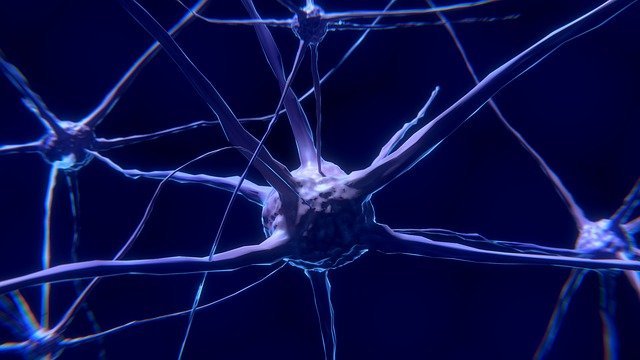
It is a strange paradox of human biology that the brain consumes an enormous amount of energy when resting or sleeping.
Now scientists have finally solved this puzzle by determining for the first time how astrocytes — the component of nervous tissue cells responsible for most functions other than information processing — are affected by sleep deprivation.
The results, which were obtained in experiments at the University of Bonn and Charité Berlin, appear in the “Journal of Neuroscience” published by the American Society for Neuroscience.
Thorough examinations to understand sleep functions Researchers assume that it is related to learning processes or with memories themselves.
Using electrodes, the scientists stimulated the brain of a mouse to keep individual nerve cells awake.
The two researchers from the Department of Cellular Neurobiology at the University of Bonn led by Prof Dr. Nikolai Axmacher and from the Department of Epileptology at the Berlin Charité headed by Prof Dr. Wolfram Koenigshoff discovered that astrocytes — which are located next to the nerve cells — are less active in sleep deprivation.
Why do neurons consume energy?
Astrocytes support neurons in many functions.
The scientists also proved that astrocytes in the hypothalamus, a small area in the brain stem which is important for regulating hormones and energy expenditure, react less to sleep deprivation than cells from other regions of the brain.
In addition, certain neurotransmitters – such as histamine or serotonin – also play a role in sleep regulation. One of the main transmitters is a dopamine-related messenger known as “orexin”.
The level of orexin in mice that have been kept awake increases significantly, which then promotes wakefulness again.
This means that the “Switch of Life” can be turned on and off – similar to a light switch.
Koenigshoff, who is also a member of the Department of Neurology at the Academic Teaching Hospital Berlin Tegel, said: “We will have to investigate which molecular signals are responsible for switching on and off energy production in astrocytes.
For this purpose, we will use optogenetics that allows us to selectively activate or deactivate nerve cells using targeted light impulses.”
Why do neurons need resting potential?
Astrocytes are considered the brains’ “helper cells”. They support neurons in many functions, including energy supply. Neurons need a lot of energy for transmitting electrical signals.
Resting potential is necessary to store this energy — like taking water from a reservoir and leading it into pipes when there is an increased requirement for it.
The scientists also proved that astrocytes in the hypothalamus, i.e. a small area in the brain stem which is important for regulating hormones and energy expenditure, react less to sleep deprivation than cells from other regions of the brain.
In addition, certain neurotransmitters — such as histamine or serotonin — also play a role in sleep regulation.
One of the main transmitters is a dopamine-related messenger known as “orexin”. The level of orexin in mice that have been kept awake increases significantly, which then promotes wakefulness again.
This means that the “Switch of Life” can be turned on and off — similar to a light switch.
What do neurons use for energy?
Scientists have long assumed that it is related to learning processes or with memories themselves.
Now scientists have finally solved this puzzle by determining for the first time how astrocytes — the component of nervous tissue cells responsible for most functions other than information processing — are affected by sleep deprivation.
The results, which were obtained in experiments at the University of Bonn and Charité Berlin, appear in the “Journal of Neuroscience” published by the American Society for Neuroscience.
Using electrodes, the scientists stimulated the brain of a mouse to keep individual nerve cells awake.
They discovered that astrocytes — which are located next to the nerve cells — are less active in sleep deprivation.
Theoretically, it was already known that neurons consume energy. The new study demonstrates for the first time that the “helper cells” of nervous tissue react differently to prolonged lack of sleep.
“Astrocytes are always involved in energy supply. Just like power stations, they deliver energy to the neurons”, said Dr. Arnd Pralle of the Institute of Reconstructive Neurobiology at Charité and co-author of the study.
During sleep deprivation, it appears that astrocytes consume less energy than normal when supplying the neurons, which would be in line with their function of nourishing nerve cells.
“Astrocytes can store energy like a rechargeable battery and release it quickly when it is needed”, Dr. Pralle added.
The scientists used genetically modified mice whose astrocytes could be selectively controlled by light impulses. Using this method, they were able to switch astrocytes off and on in a select group of cells.
How much energy brain consumes?
Normally, a mouse brain consumes a quarter of the oxygen that reaches its blood. This restricts the maximum amount of energy that can be generated by adult mice to 500 milliwatts per kilogram.
A light bulb on the ceiling with two watts emits as much energy as an average adult consumes daily — but without doing work. In comparison: An athlete’s brain at maximum output consumes more than six times as much.
The oxygen consumption of the brain also determines the body’s “Kilowatt-hour rate” — how many watts per hour are consumed. It is usually measured in kilocalories — so 1 kcal equals 4,186 kilojoules or 0.239 kilowatts.
In mice, the kilowatt-hour rate is equivalent to about five kilocalories per day.
In a study of adult mice, the researchers set out to determine how much energy their brains consume when they are active versus relaxing.
When the animals were awake and moving around, we measured average energy consumption of 250 milliwatts per kilogram of brain tissue.
When they were asleep, it dropped to 150 milliwatts”, explained Dr. Pralle. That is the equivalent of a light bulb running at 60 watts.
The scientists discovered that sleep deprivation increased energy consumption even further: The mice consumed up to 350 milliwatts per kilogram of brain tissue — almost as much as when they were awake.
“We were really surprised by the large amount of energy that astrocytes use. It is even more than neurons”, said Dr. Helmut Hildebrandt, who oversees the research group at the Institute of Reconstructive Neurobiology at Charité’s Center for Brain Research (CBR). ”
Conclusion
Astrocytes can store energy like a rechargeable battery and release it quickly when it is needed. This study shows that asleep or awake, this happens regardless of whether the brain is working hard or relaxing.
The results are important in showing how sleep deprivation affects the ability to learn new things because it affects the creation of new memories by increasing the energy needed by the brain.
Dr. Pralle said: “We found that astrocytes are not simply resting cells, but extraordinarily active ones.
It makes sense to assume that neurons too are very active during sleep deprivation, which would then require more energy from the astrocytes.”
The study suggests that improving people’s ability to learn and retain information during sleep deprivation could be achieved by enhancing the energy supply to their brains.



